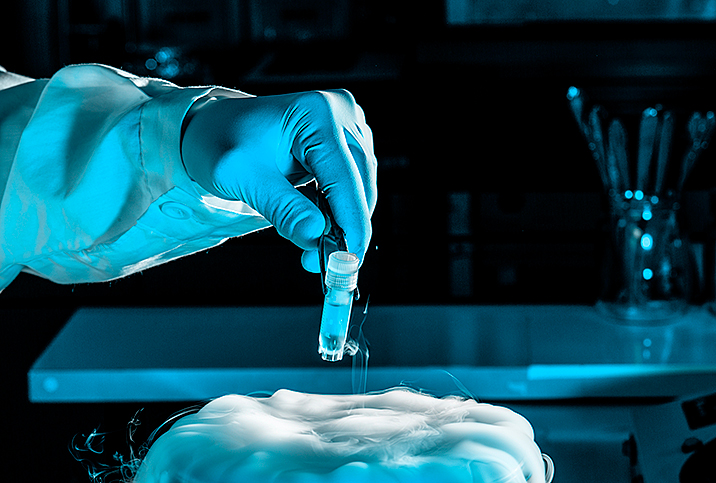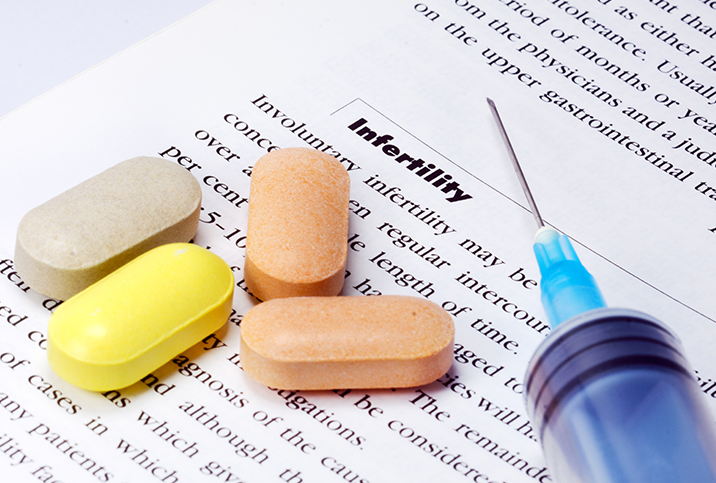Can You Exercise Your Sperm Into Submission?

To be clear, exercise is a good thing. Good for the heart, the bones, the muscles, bodily systems and more. That includes fertility.
Studies show that physically active men exhibit improved sperm motility (movement) and morphology (shape and structure). Again, exercise is positive, and regular, moderate workouts benefit your fertility.
However, as with most other good things, you can have too much. Extreme exercise—think ultramarathon running or competing in ultra-triathlons—might be too much for your sperm. Or maybe it's the type of exercise that is the problem. Let's find out.
Too much exercise for fertility
"Generally speaking, men who compete in extreme endurance sports such as ultramarathon running tend to have lower testosterone levels than if they were the same individual not exercising to that intensity," said Justin Houman, M.D., a reproductive urologist and men's health specialist at Tower Urology in Los Angeles.
Studies, including "The Impact of Intense Exercise on Semen Quality," suggest high-intensity exercise such as marathons, vigorous training and high-altitude mountaineering can have negative effects on sperm health. Moderate-intensity exercise, however, is good for the health of a man's own swimmers.
"There is a lot of evidence to show that athletes and men who partake in regular extreme exercise, such as marathon running, can have lower semen parameters," said Ramy A. Ghayda, M.D., M.P.H., a urologist at University Hospitals and an assistant professor at Case Western Reserve University School of Medicine in Cleveland.
High-intensity exercise and sperm parameters
To produce sperm, you need intratesticular testosterone—endogenous testosterone, which is naturally made in the body—Houman said. Given that endurance exercise can reduce testosterone levels, it can impact sperm production.
In addition, the more you exercise, the more your body temperature increases, and since the testicles need to be a little bit cooler than the rest of the body, keeping their temperature elevated for long periods and intense levels impacts testosterone and sperm production, Houman added.
"Semen parameters can also alter due to body composition changes," said Ghayda, who is also the chief medical officer at Legacy, which offers sperm testing, analysis and storage. "There is a change in the muscle-versus-fat ratio, hormone levels alter and higher levels of cortisol are present. All of these factors can adversely affect fertility."
How much exercise is too much when trying to conceive?
It's not only the amount but also the type of exercise that can impact fertility, according to Houman, who said being a runner is different than being a cyclist. The latter can cause pressure in the perineal area and impact fertility.
As "The Impact of Intense Exercise" study suggested, cycling is one of the most troublesome activities for fertility. This is due to several reasons: the mechanical impact from sustained sitting, gonadal overheating, wearing tight clothes and hypogonadism, or low testosterone.
"Any sport that entails being on a tight seat for a significant amount of time can adversely affect fertility. The seated position puts pressure on the veins and arteries in the prostate and testicles, and increases heat in this area," said Ghayda, who added the testicles are outside the body for a reason. "We know that sperm production happens best when the testicles are slightly lower than body temperature, so any overheating to the testicles due to a sport such as cycling can lessen sperm production."
How athletes can maximize fertility
On the whole, exercise is obviously good. Generally, research shows that exercise is mainly associated with positive or neutral effects on sperm quality and quantity, but professional athletes or anyone partaking in endurance sports should be aware of potential risks.
If you are an endurance athlete, Houman said the best thing to do is get a semen analysis to see where you stand.
"If your sperm quality is great, despite intense exercise, then you don't need to change anything," he said. "However, if your sperm parameters are poor, and you are doing high-intensity exercise, you might want to tone it down a little."
"If you are a professional athlete or regularly partake in extreme exercise, your best fertility insurance policy is to freeze your sperm," Ghayda said. "Have a semen analysis test to assess your baseline before starting intense training. If the semen parameters are good, then think about freezing your sperm before you begin exercising intensely—just in case."
Testing your sperm before beginning endurance exercise is extremely important, in Ghayda's opinion, to know your baseline. The sperm cycle, he said, is about 74 days, so you form new sperm approximately every three months.
"If semen parameters are good, extreme athletes may benefit from annual sperm analysis," he said. "However, if the semen parameters are low, you may need to have sperm analysis every six months to give you more insight into your fertility."
Although extreme exercise can affect fertility in some people, Houman said he'd rather see a very healthy patient who is an ultramarathon runner, as it's much easier to throttle back exercise.
"If exercise impacts fertility, it is usually only a short-term issue that can be resolved by reducing the exercise quantity," he said.


















